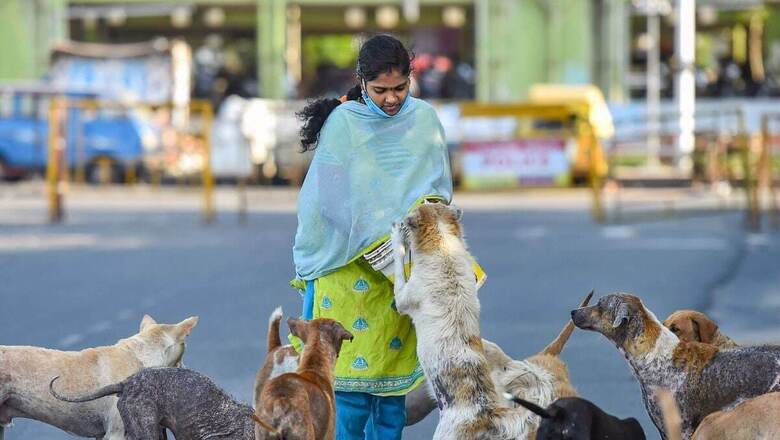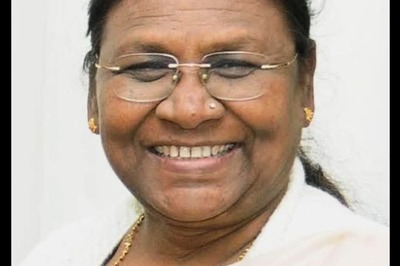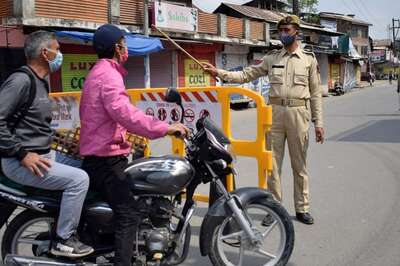
views
The Kerala High Court recently expressed concern over the rising population of stray dogs. “It is a menace to society,” said the court, while highlighting that children fear going to school alone and residents avoid morning walks in certain areas, alarmed by the risk of encountering aggressive stray dogs.
The bench of Justice PV Kunhikrishnan added that if any action is taken against the canines, dog lovers come and fight for them.
“But I am of the considered opinion that human beings should be given more preference than stray dogs,” said the judge.
The court clarified that barbaric attacks on stray dogs by human beings also should not be allowed, but dog lovers should not only write and speak for the dogs in print and visual media, and instead should come forward to protect them, “…if there is bonafide in their words along with the Local Self Government Institutions”.
“It is scary to see the photographs of injured small children, youngsters and old people in newspapers because of the attack from stray dogs. A solution is necessary for this,” the judge emphasised.
He opined that the local self-government authorities should give licences to dog lovers who come forward for the cause of stray dogs. And while giving licences, the local authorities can impose conditions in tune with the provisions in Animal Birth Control Rules (ABC Rules) 2023, said the court.
“The bonafide dog lovers can be given licence if they are ready to protect the stray dogs in tune with the provisions of ABC Rules 2023 and other statutory provisions,” the judge held.
Residents of the Muzhathadam ward in Kerala’s Kannur district had filed two writ petitions before the high court against the activities of one Rajeev Krishnan who claimed to be an animal lover.
The petitioners submitted that the Muzhathadam ward within the Kannur municipal corporation was a thickly populated residential area, and for the last three years, Rajeev Krishnan was keeping several stray dogs in his house.
They stated that whenever a stray dog falls ill, is involved in an accident, or suffers from any infirmity, it is brought to the residence of Rajeev Krishnan, who is now not able to nurture them properly as his place has become very unhygienic, and filthy which is causing nuisance to the people of the locality. The petitioners also complained of dogs barking day and night and a threat to the safety of children and senior citizens in the area.
They urged the high court to direct local authorities to take immediate action against the “illegal activities” of Krishnan.
On the other hand, Krishnan submitted that the nine dogs that he was currently keeping, had been vaccinated and sterilised and no incident of dog biting had happened because of the strays maintained by him.
He also apprised the court that he approached the municipal corporation to get a licence for his activities, which was still awaited.
“Human-dog conflicts are taking place at regular intervals leading even to law and order problems in our State…A section of the people is against the stray dogs and their demand is to kill those dangerous dogs. On the other hand, there are dog lovers and they are fighting for these stray dogs,” the court noted.
It also highlighted the number of cases and deaths due to rabies in India which were 733 in 2020, 105 in 2019, 116 in 2018, 111 in 2017, 93 in 2016, 113 in 2015, 125 in 2014, and 132 in 2013.
The court emphasised that while Rajeev Krishnan’s compassion for injured stray dogs was commendable as he was protecting injured strays on his property, he must understand that the petitioners were not against the dogs but they were worried because of the nuisance created by many dogs.
“Since Mr Rajeev Krishnan is ready to maintain stray dogs, I am of the considered opinion that, he should approach the Corporation of Kannur for getting a licence for keeping the stray dogs in his premises,” the judge held.
The court ordered that if such an application is received, the corporation of Kannur will consider it and issue a licence after imposing stringent conditions in tune with ABC Rules 2023 and also the Kerala Municipality Act, 1994.
“The orders shall be passed within one month from the date of receipt of the application,” the court directed and disposed of the petitions.




















Comments
0 comment